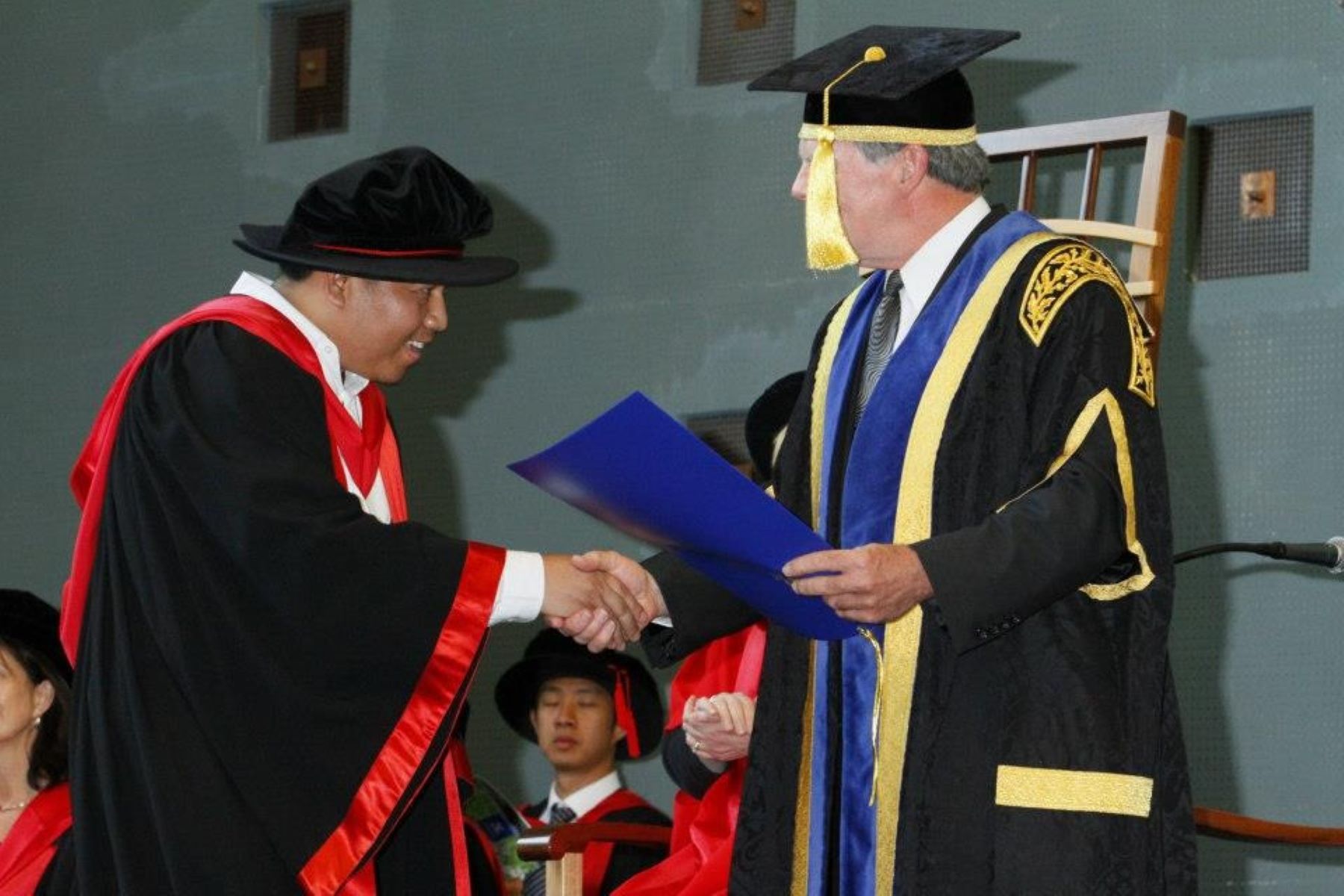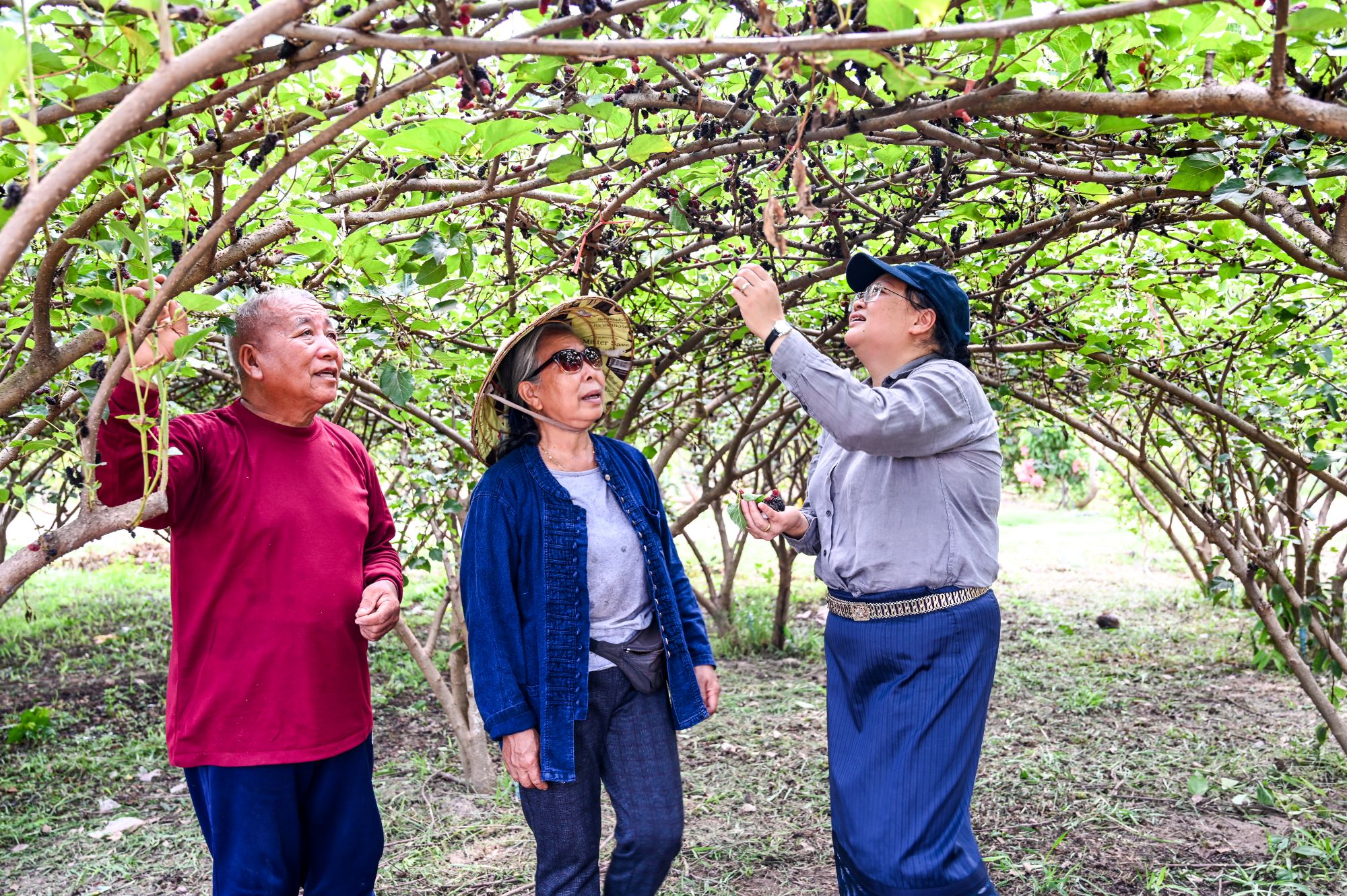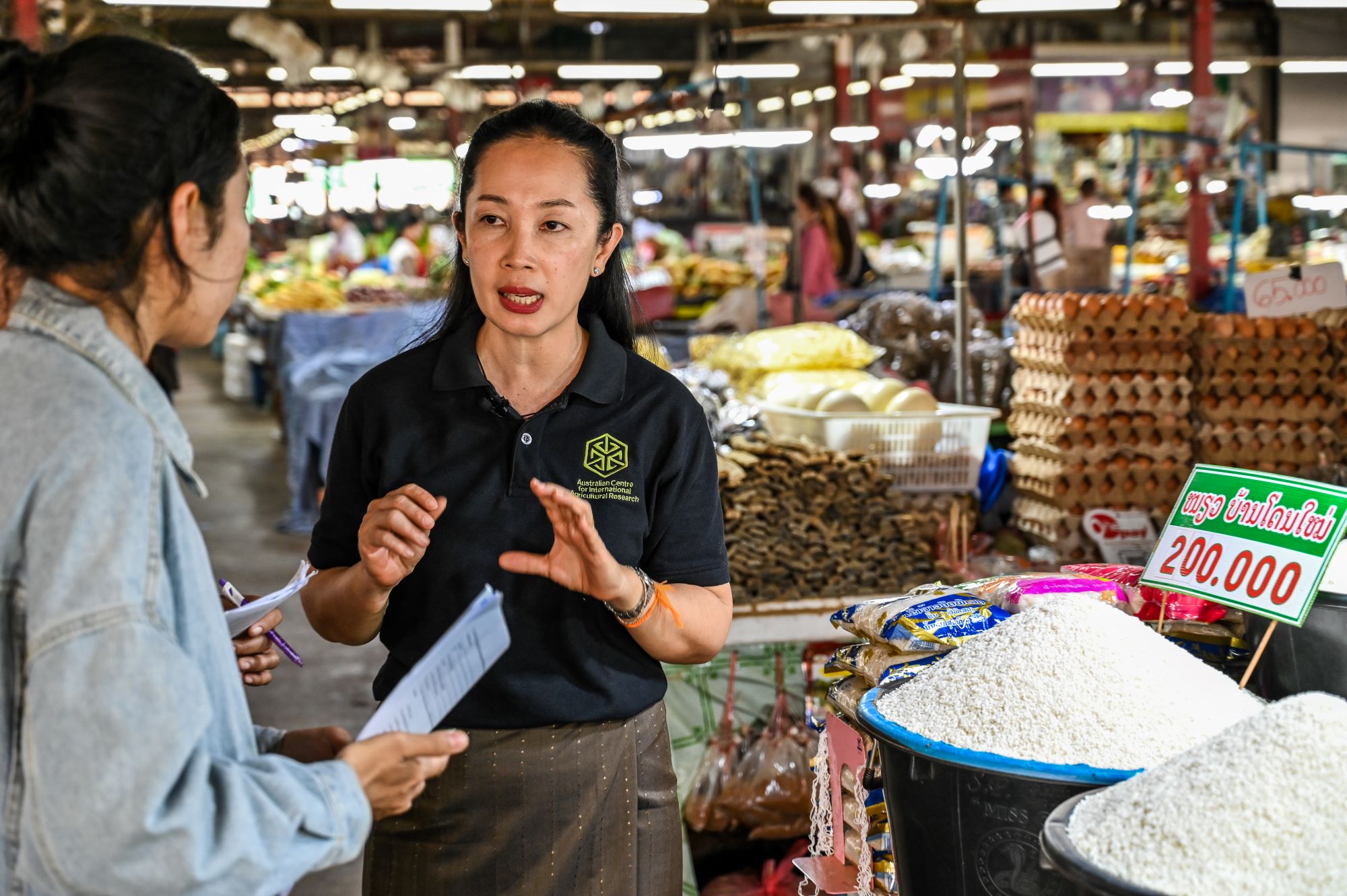Capacity development has been a key feature of the longstanding relationship between ACIAR and Laos. This focus has helped to strengthen the skill base in agricultural, fisheries and forestry research across the country.
Over the past 35 years, many Laos researchers have benefited from ACIAR-funded programs including the John Allwright Fellowship, the John Dillion Fellowship for higher tertiary degrees in Australia, and the Meryl Williams Fellowship, which supports the development of women's leadership and management skills, as well as series of short courses and masterclass training.

In June, more than 30 ACIAR alumni from Laos gathered to reflect on the journey of cooperation and discuss agricultural research priorities for Laos.
For that event, prominent alumni reflected on their involvement with ACIAR and the benefits for themselves and for Laos. These alumni are among the many researchers and other collaborators involved in projects that ACIAR has been brokering and supporting in Laos since 1990 - projects that are designed to enhance agricultural productivity and sustainability and improve the livelihoods of rural communities.
Leading forestry research with ACIAR
Dr Somvang Phimmavong is Director General of the Department of Forestry at the Ministry of Agriculture and Environment. In 2008, he received a John Allwright Fellowship to complete his PhD at the University of Melbourne. He was a lecturer at the National University of Laos (NUOL) at the time and had helped to coordinate NUOL's involvement in what was the first of many ACIAR-supported forestry projects the university was involved in.
Dr Phimmavong said the support of university staff during his time in Australia, and the friendships and professional networks he developed, have all remained with him over the years.

'My study in Australia significantly strengthened my analytical and leadership skills. It broadened my international networks and deepened my understanding of inclusive and event-based policy developments. This is very important, not just to increase my knowledge but also to increase my network with the regional and global network.'
Dr Phimmavong said his PhD helped him to put theory into practice to solve real-world problems, building institutional capacities and promoting evidence-based forest policies in Laos. 'Ultimately, I would like to see the Lao economy become stronger and maximise the value of our forest resources in a sustainable and responsible manner.'
After completing his PhD, Dr Phimmavong returned to Laos and continued as a lecturer at NUOL, also collaborating on further ACIAR-supported research until he joined the Department of Forestry in 2020.
Dr Phimmavong highlighted the ACIAR approach to inclusive development. He said throughout his career he has also advocated for inclusive policies and capacity-building programs, particularly those that empower women to take leadership roles in forest management in Laos.
Sharing expertise in engineered wood products
Dr Khamtan Phonetip is a lecturer and researcher at the NUOL Faculty of Forest Science, specialising in sustainable forestry and engineered wood products. It is a field of expertise he has built with support from ACIAR through involvement in research projects and a John Allwright Fellowship.
This fellowship allowed him to undertake his PhD at the University of Melbourne. He researched solar kiln drying techniques, which in turn generated a further ACIAR-supported project in Laos.
As a lecturer at NUOL, Dr Phonetip said he can share with students the knowledge gained from his time in Australia and from the different ACIAR projects he has worked with. His career has advanced with increasing teaching responsibilities for bachelor's and master's degree students, to the supervision of PhD candidates and curriculum development.
Dr Phonetip sees plantation timber and engineered wood products as fundamental to the future of forestry in Laos, incorporating innovation and sustainability.
'Tertiary education is a key part of the success of this field. I would like to shape the future of the forestry sector in Laos, coming back to provide teaching as a knowledge hub for the university.'
Dr Phonetip also extends his expertise to government and non-government organisations. He offers research support as a consultant to help develop the country's forestry sector and improve livelihoods for the community.
The confidence to lead
Dr Phonevilay Sinavong worked as an agricultural researcher on several ACIAR-supported projects before joining the Ministry of Agriculture and Environment as assistant to the Vice-Minister in 2020.
In making the move between roles, she has been able to call on the skills she has learned through research projects and the Meryl Williams Fellowship she was awarded in 2020.
'I had learned scientific and research methodology but was keen to learn leadership and management skills,' said Dr Sinavong.

'ACIAR gave me a lot of opportunities to learn. I gained knowledge from the field, from the research side. I could see how they manage a research project with their leadership. I am still very young as a researcher, and when we do research together, the Australian researchers are very patient with me, and they coach me during the research.'
Dr Sinavong's Meryl Williams Fellowship also exposed her to leadership training specifically tailored for women. This included aspects of self-development along with communication skills and how to work with and lead diverse teams. Dr Sinavong said she also learned the value of work-life balance to maintain productivity.
Most importantly, she said, it helped to build her confidence and stay focused on her dream of empowering rural communities with new opportunities for a better life. 'I have found a strength within myself.'
Dr Sinavong said she uses the skills she has gained every day in her work, and she is grateful for the support from ACIAR in continuing to recognise and promote opportunities for women in agriculture.
Research networks and life experience
Dr Chitpasong Kousonsavath is the most recent Laotian graduate of the John Allwright Fellowship program. She completed her PhD at the University of Adelaide in 2024, although she has worked as a business management and market researcher on ACIAR-supported projects since 2011.
Now a lecturer at the NUOL Faculty of Agriculture, Dr Kousonsavath said studying in Australia had not only built her professional experience but also broadened her personal life experiences.

'We get a broader connection with other researchers from other countries. I have friends from Indonesia, Vietnam and Australia. This has broadened my research community. In the future, we may need their support in some way in the research industry.'
Dr Kousonsavath said the research skills she has brought back would provide tools for students and improve the quality of her teaching at NUOL.
'My primary goal at the moment is to transfer my knowledge to a younger generation, and to my workplace, such as the consumer research skills that I received from Australia.
'I also want to continue to participate in business projects under ACIAR support and hopefully help local people with the marketing side of the agriculture sector.'
As a supporter of the ACIAR alumni network, Dr Kousonsavath said it offered connections locally with others in Laos and with the broader Southeast Asian research community. It also provided opportunities for ongoing mentorship between senior and younger researchers to support leadership in agricultural development.
Long-term collaborators
Over the years, other collaborators have included the Ministry of Agriculture and Environment, the National Agricultural and Rural Development Research Institute, and the National University of Laos.
Research projects have focused on innovative livestock systems, sustainable crop production, and efficient forestry industries. These efforts, in addition to ACIAR's capacity development programs, have contributed to improving food security, increasing agricultural productivity, supporting smallholder farmers in Laos and strengthening the capacity of the country's researchers in these fields.






